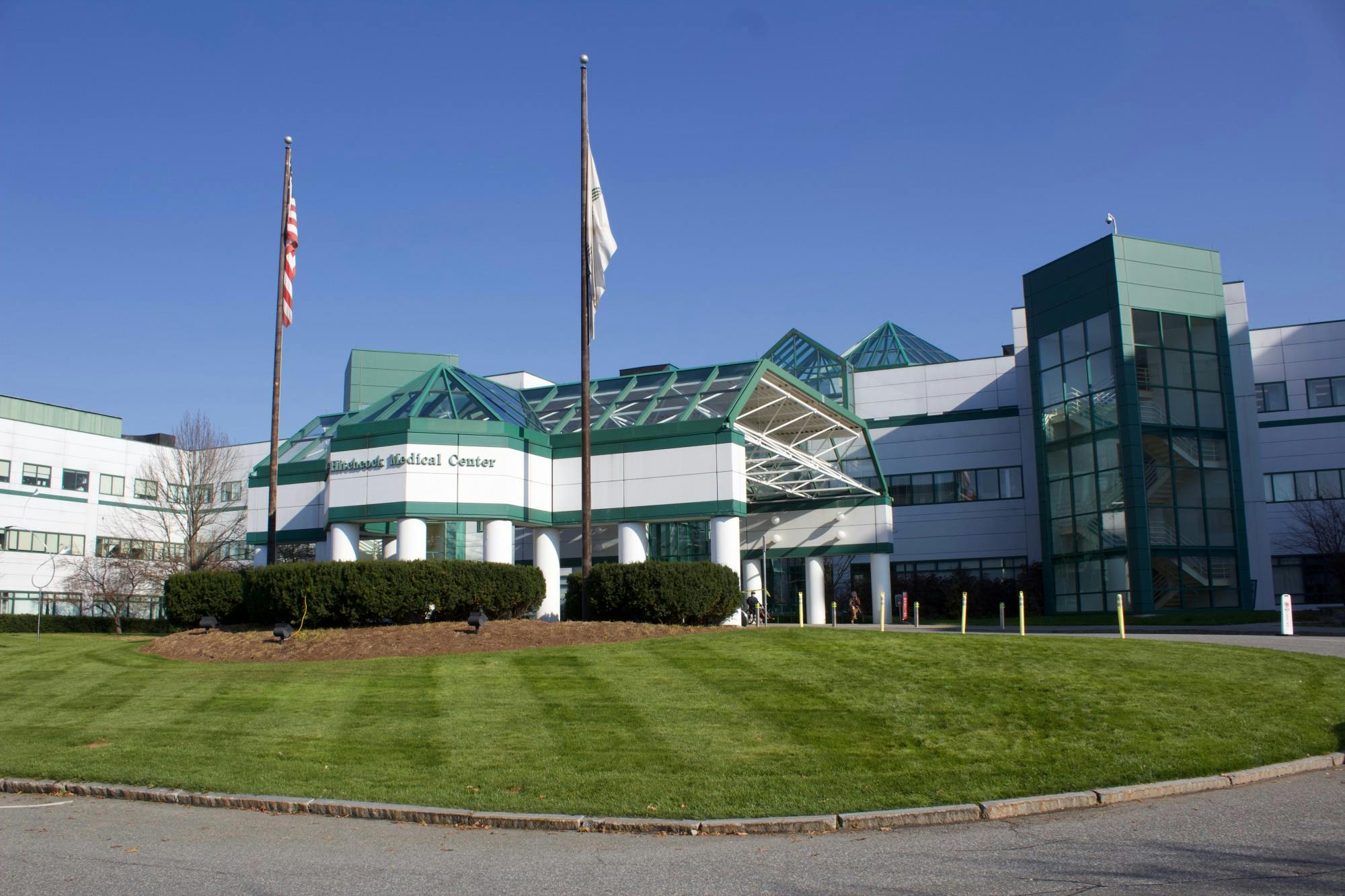As a result of significant spikes in cases of COVID-19 nationwide and in the Upper Valley over the past few months, and in large part due to the onset of the omicron variant, Dartmouth Hitchcock Medical Center is reporting staff shortages and full intensive care units.
COVID-19 cases at DHMC have increased during the most recent surge, according to Feller-Kopman. On Jan. 19, New Hampshire saw a seven day average of 2,663 active COVID-19 cases, according to the state dashboard, up nearly five-fold from a seven day average of 589 on Oct. 19, 2021.
“So many people have it, you can assume that everyone has it,” Feller-Kopman said.
DHMC epidemiologist Dr. Justin Kim wrote in an email statement that he believes the region is currently in a “plateau” period before cases decline in February.
“COVID-19 case counts are not likely to get worse, but they will likely be slow to improve over the next few weeks,” he wrote.
Feller-Kopman said that much of the hospital’s most recent surge was initially due to the delta variant, but was soon overtaken by the omicron variant. However, he added that the specific time frame during which the omicron variant took over — or any specific details about the percentage of cases that have been the omicron versus the delta variant — remains unclear.
“We don’t get such genotyping on a case-by-case basis,” Feller-Kopman said.
However, he added that the hospital has noted a marked trend among the patients being admitted for care.
“I would estimate over 90% of the patients who are in the ICU and on ventilators, as well as just general hospitalized patients, are unvaccinated,” Feller-Kopman said. “If you’re vaccinated and boosted, unless you’re otherwise immunocompromised, the odds of ending up really sick are quite low.”
On average, the omicron variant is less severe than delta, but hospitalizations at DHMC have increased nonetheless.
“Even if we know that omicron is less virulent, just by infecting so many more people, if you have a smaller percentage getting really sick but it’s a larger [total number], you’re still going to have a lot of people who are really sick,” Feller-Kopman explained.
Such pressures have put a strain on DHMC’s ICU capacity. According to Feller-Kopman, the hospital increased its ICU capacity from two teams to four teams and has employed workers overtime during the pandemic, but the ICU has still been completely full at points in the last few weeks.
“We unfortunately have had to turn away patients just because we don’t have the capacity to care for them,” he said.
Aside from leading to spikes in cases, this most recent surge has led to staffing shortages due to sick staff, a scenario Kim called a “twin-demic.”
“Staffing challenges remain … where we are most strained,” Kim wrote.
According to Feller-Kopman, even before the omicron surge, DHMC already had trouble finding staff due to the labor shortage in the Upper Valley.
In response to these staffing shortages, DHMC has hired travel nurses and solicited the support of FEMA and the National Guard, Kim and Feller-Kopman said.
“We can use any help we can get, from administrative to clinical duties,” Kim wrote, adding that “FEMA has been extremely helpful in supplementing our staff in various capabilities.”
According to Feller-Kopman, the recent surge has put a significant emotional strain on DHMC’s staff.
“People are just tired,” Feller-Kopman said. “They’ve been working really hard and they’ve been working extra.”
Kim echoed this sentiment, noting that staff are “exhausted” and “frustrated,” especially given the widespread availability of vaccines.
“It’s very hard on our staff to have to contend with our ICU being constantly filled with COVID-19 patients and to have to see so much patient suffering day in and day out,” he wrote.
Feller-Kopman predicted that the country may be approaching the point where COVID-19 becomes an endemic disease, existing at a relatively stable level in the population.
“After we recover from this current surge, and there’s a combination of a whole lot of innate immunity from exposure and ideally vaccination, maybe we’ll get into the phase where this becomes like the flu,” he said.
DHMC emergency medicine doctors Matthew Roginski and Scott Rodi and DHMC pulmonologist Alix Ashare did not respond to requests for comment. Former Dartmouth COVID-19 task force co-chair Lisa Adams declined to comment, pointing to an article she wrote for the Infectious Disease Society of America reflecting on the College’s winter 2021 outbreak.


